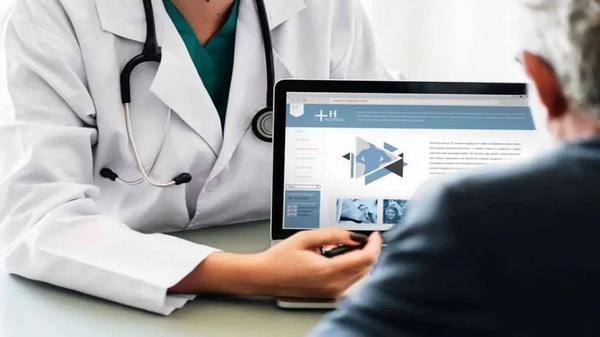Technology revolutionizes medicine: what are the main trends in "Health 4.0"
Telemedicine, remote monitoring, data processing promoted by artificial intelligence and avant -garde research.We are witnesses of unprecedented development in the field of health technology.The countercara, the threat to the privacy of patient data.
The innovations promoted by the data generated for medical care suppliers and health technology companies are many, including remote monitoring, nanotechnologies and augmented reality.
However, as new technologies arise, the need for clean and high quality data also increases.This presents complex challenges for an industry characterized by strong data protection controls and cybersecurity attacks.
"Medical care faces a new border of technological innovations that greatly promise to offer better results for patients and empower the decision -making of medical care suppliers," analyzes Facundo Navarro, Engagement Manager in INTive, a global technology companyin rapid growth and partner of leading brands in the world.
The main current trends in health technology innovations that identified Navarro and that Intive shared with iprofesional, are the following:
Nanotechnology
Scientists are using this technology to improve drug management systems and medical images, as well as to combat tumors.The nanotechnology market size is expected to reach almost 291.000 million dollars for 2028.
IoT -driven monitoring
The internet of things devices (IoT, acronym in English) are currently being used for remote patient monitoring, an essential tool for a world that still suffers the coronavirus pandemic.

In his study on IoT growth, McKinsey predicts that human health will constitute 10 to 14% of the estimated IoT value by 2030.The Shanghai Public Health Center (SPHCC) reported that it uses IoT technology and portable sensors to monitor the body temperature of COVID-19 patients, which reduces the risk of exposing caregivers to the virus.
Data Analytics
It is estimated that the volume of data generated annually by the health industry grows 48% year after year.Data analysis and artificial intelligence (AI) are helping to boost medication administration, also reducing medication launch times, through AI and business intelligence.
It is also being used in precision medicine: Vara, the health technology company, develops algorithms to detect breast cancer, using a set of data of 2.5 million images of breast cancer for training, validation and validationevidence.
Augmented reality and virtual reality
They are already advancing in the technology sector and promoting innovations, in education, surgical visualization, physiotherapy, etc..Surgeons use RV to perform advanced procedures.They train and create muscle memory without any risk for the patient, resulting in faster procedures and less errors.
Challenges about data and privacy
The countercara of a promising horizon, are the challenges facing the sector: "Creating and taking advantage of health technology solutions is not a simple task, especially in an industry where data protection is an absolute priority and access can be restricted,"Navarro explained.
Move, manipulate and manage health data is a complex task, and without properly precise and administered data, technology solution suppliers run the risk of producing unreliable results and creating biases.The capture of clean, precise, complete and formatted data with precision has been a challenge for many organizations.
Medical care data sets continue to be a main objective for computer pirates, so it is crucial that health technology companies and suppliers adopt advanced safety practices to avoid expensive data leaks.
While 91% of respondents in a recent KPMG survey predicted that AI could increase patients to care, 75% believe that AI could threaten the privacy of patient data.
To continue promoting advances in Big Data and Artificial Intelligence, and helping to build the innovations of the future, medical care institutions and technological partners must join to guarantee the quality and proper management of data.
This means taking advantage of data management solutions to boost data quality.They must also take security measures such as authentication protocols, transmission security, access controls and audit to guarantee the best data security.
Black Friday: Bitcoin collapses and the main cryptocurrencies
"Medical care is providing a new border for innovations promoted by data that have the power to drastically improve health results for people around the world.Given the challenges related to the management and appropriate standards of the data, it is essential that medical care providers and technological partners join to build a system that protects and ensures the data while facilitating more innovations, "Navarro concluded inAn iprofesional article.
